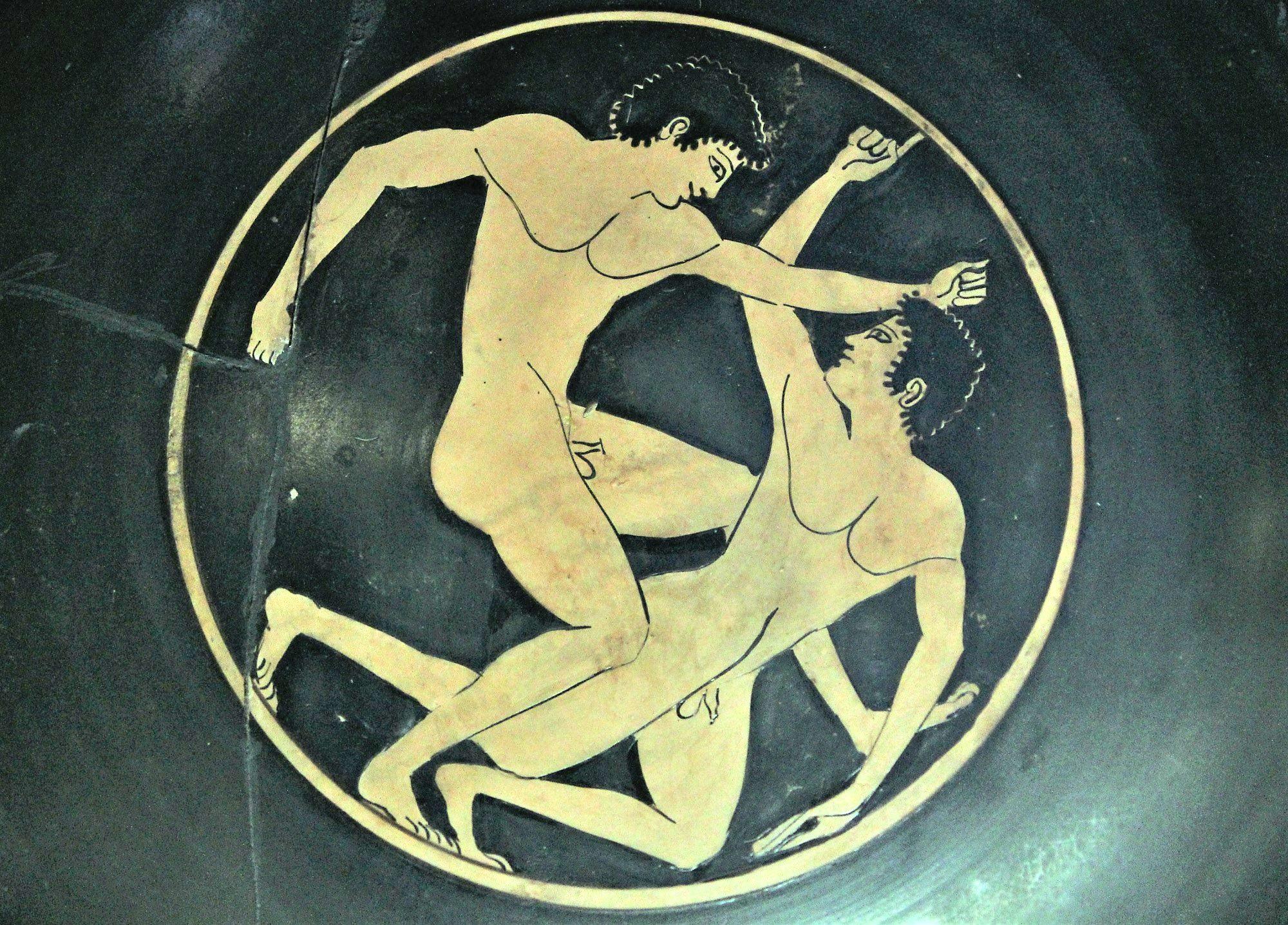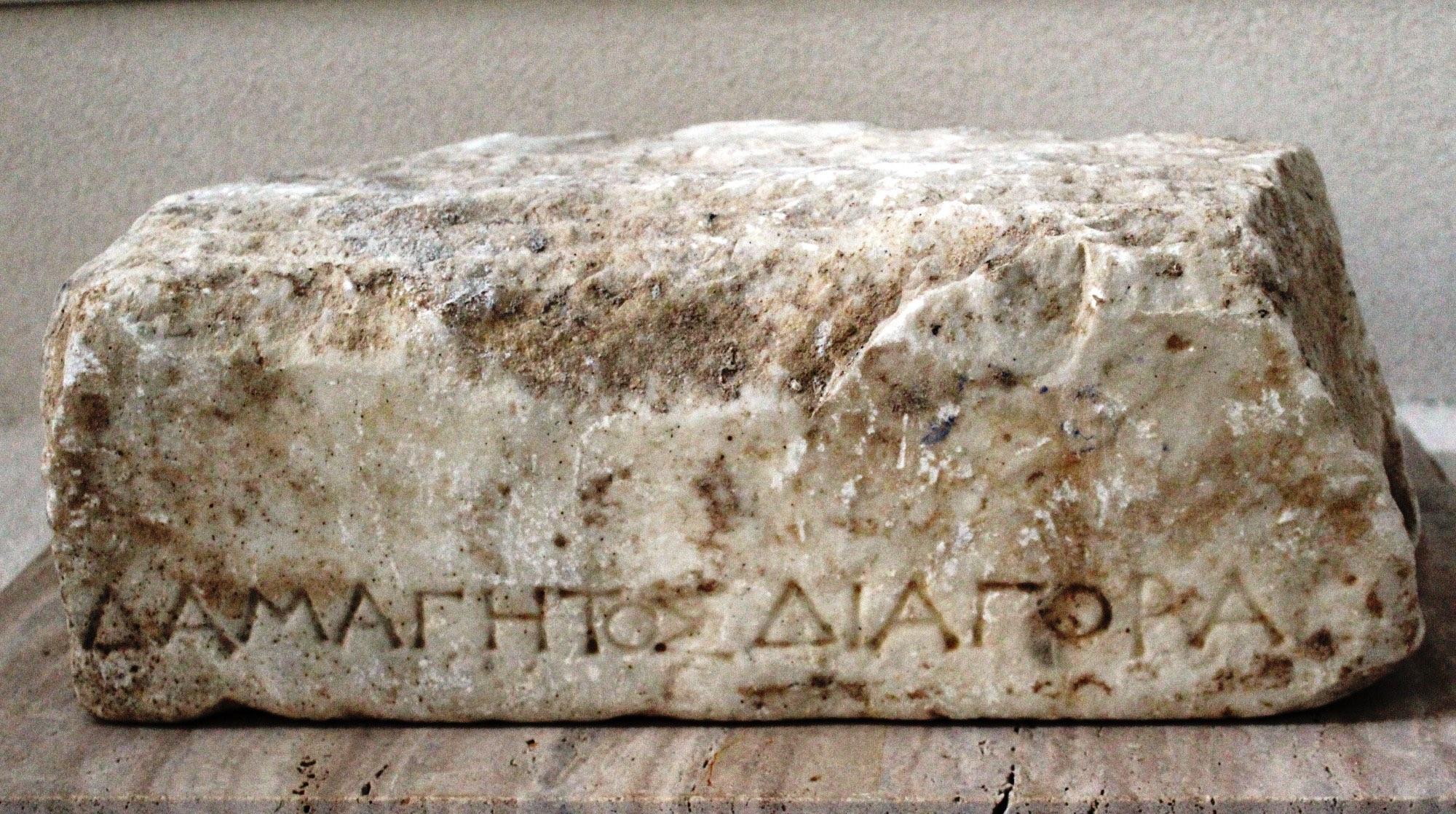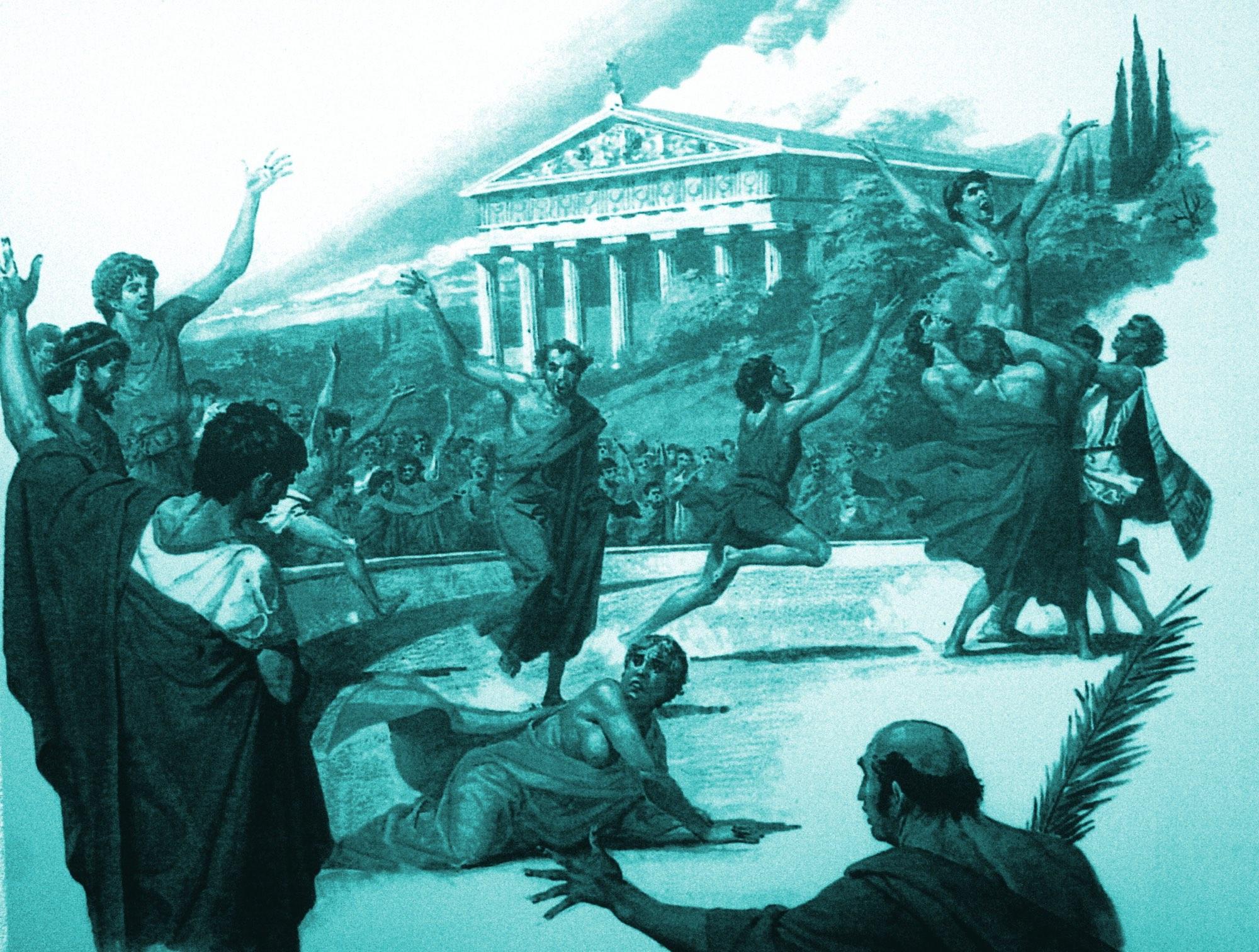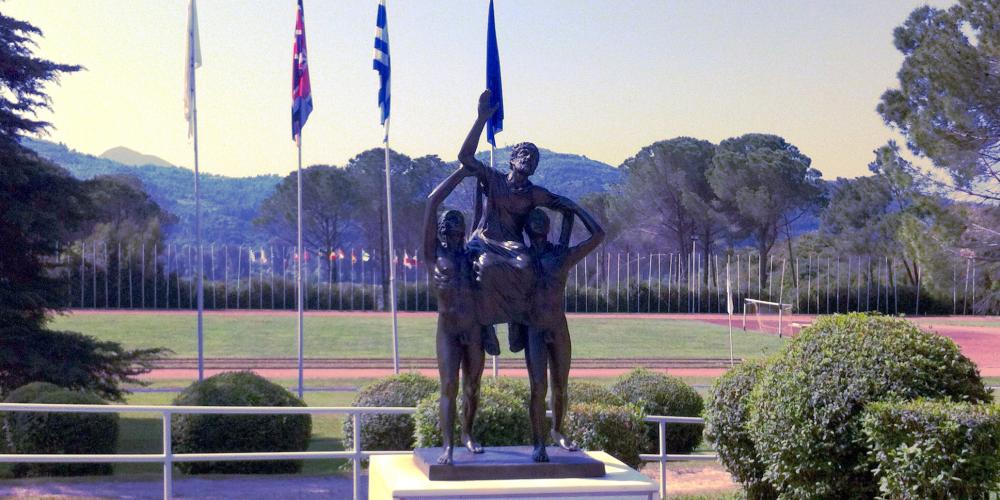Diagoras and his family of champions - stories of virtue and glory

The importance of a victory in Olympia was incomparable, since the Olympic victor was considered to be “chosen” by the Gods. The athletes who won the olive wreath during the Games enjoyed special privileges for the rest of their lives - when they went home, they were worshipped as heroes or semi-gods. Defensive walls would symbollically be demolished to make a grand entrance for the winners at their reception ceremonies.
The Games were open to all spectators, including barbarians and slaves, but married women were excluded. In Roman times, only the priestess of the goddess Demeter Chamyne had the privilege to watch them, seated at the goddess’ altar at the north side of the Stadium, opposite the Judges. The punishment for the violation of the rules was very strict. It is said, that disobedient women were to be thrown down from the top of a mountain near Olympia called Typaion.

Diagoras, was a famous Olympic victor in boxing, from the island of Rhodos. His three children and two of his grandchildren all became Olympic champions. In the beginning of 5th century BC, he had the unique joy to watch his sons both win on the same day at Olympia. His children admired their father so much that when they won, they gave him their olive wreaths and carried him on their shoulders in the stadium, while the spectators applauded. According to the tale, he died that very moment of ultimate happiness!

Diagoras also had a daughter named Kallipateira. Her youngest son Peisirodos (grand-son of Diagoras) decided to take part in the Olympic Games. Although married women were not allowed to enter the stadium during the Olympic Games, Kallipateira dared to accompany him—dressed as a man pretending to be his trainer. When Peisirodos beat his rivals, she rushed towards her son to embrace him. Unfortunately, her dress fell down, exposing her breast and revealing that she was a woman. Despite this, the Eleian judges did not punish her out of respect for her family's glory throughout the Olympic Games. However, in subsequent Games, the Eleian officials obliged trainers to enter the Stadium naked, as the athletes did

The story of Kallipateira has been uniquely immortalised in a sonnet of the modern Greek poet Lorentzos Mavilis: “… Do not compare me to other women. In this age, my house will brilliantly shine with the unfading privileges of courage…”

